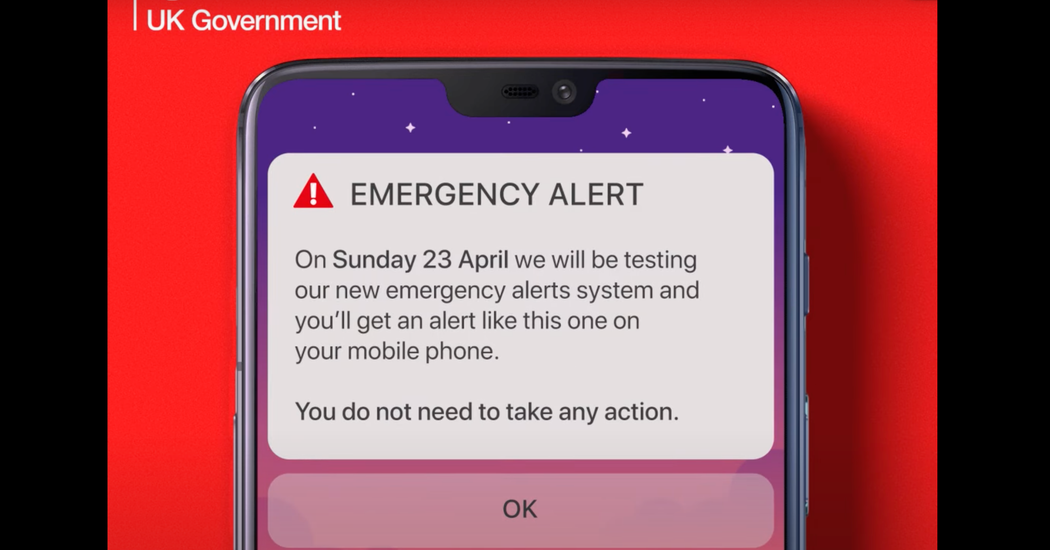On Sunday, a “loud siren-like sound” will blare from mobile phones across Britain for up to 10 seconds as part of a test for a new emergency warning system launched by the British government.
Governments and institutions around the world use similar warning systems in life-threatening situations such as terrorist attacks and severe weather. The alerts, which in many cases are sent as notifications or text messages, warn people in the path of danger to take shelter or get to safety.
In Britain, the alert service test has sparked backlash from some, with some officials and organizations encouraging people to switch off the service.
Here’s what you need to know.
What is going on?
People with smartphones across Britain, including visiting tourists, will receive a warning at 3pm on Sunday that the government describes as a “loud, siren-like sound” accompanied by a vibration.
“It will appear on your device’s home screen and you will need to confirm it before you can use any other features,” the UK government said in an announcement about the warnings.
The alerts are sent through cell phone towers, which broadcast alerts to anyone in danger. They are intended to be used “very rarely”, the British government said in a statement, adding that the warnings will only be used when there is an “immediate risk to people’s lives”.
Who else uses similar warning systems?
Similar warning programs are in use around the world, including in the United States, Canada, the Netherlands, and Japan. They haven’t always been well received, as happened in Florida on Thursday when a test alert was sent out at 4:45 a.m.
Similar to how they will be used in Britain, the alerts will be sent out in emergency situations, such as mass shootings, floods, bushfires, tornadoes and other natural disasters. When a gunman opened fire on the Michigan State University campus in February, students were notified of the situation via text message and many waited all night for emergency system updates.
In some cases, they have also been used to warn residents about using city water when operations at a water supply have been disrupted.
Some in the UK are not happy with the warning.
Sunday’s test of the new emergency alert service has already led to some backlash. For some, the alarm, which can last up to 10 seconds, is perceived as a nuisance. Jacob Rees-Mogg, a Member of Parliament for North East Somerset, told his followers further Twitter to “turn off the unnecessary and intrusive warning.”
For others, the warning has raised serious privacy concerns. Refuge, an organization that helps women and children who are victims of domestic violence, is advising survivors of abuse to turn off the service amid concerns that hidden phones in their homes could go off.
In response to such criticism, the UK government said it is working with organizations working with “vulnerable women and girls to ensure they are not adversely affected by the introduction of emergency warnings”, adding that it will be possible to wonder report if they need it. their phone to stay hidden.
Others feared the alerts could access personal information on phones, such as location data, but the UK government has said this shouldn’t be a problem because the alert system works through mobile phone towers. Personal data and exact locations will not be collected or shared, the government said.
How can people avoid the warning?
The alerts can be disabled by searching a phone’s settings for “emergency alerts” and disabling “severe” and “extreme” alerts.
Britons can also avoid receiving the Sunday test alert by turning off their phones or putting their phones on airplane mode for the duration of the test.
Not everyone will receive the test alert.
The alert only sounds on phones with the latest software available, such as iPhones with iOS 14.5 or later and Android phones and tablets with Android 11 or later.

